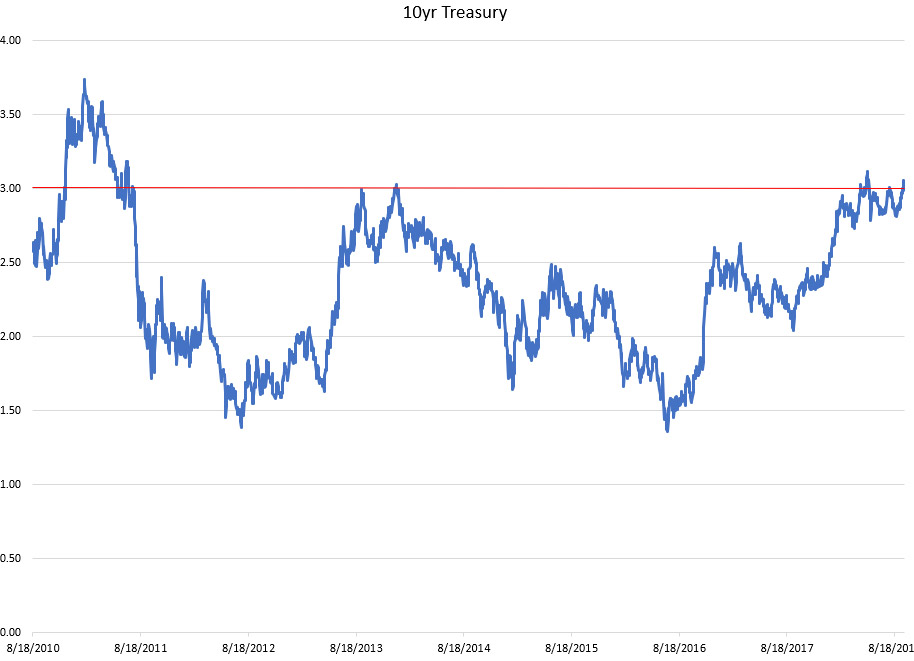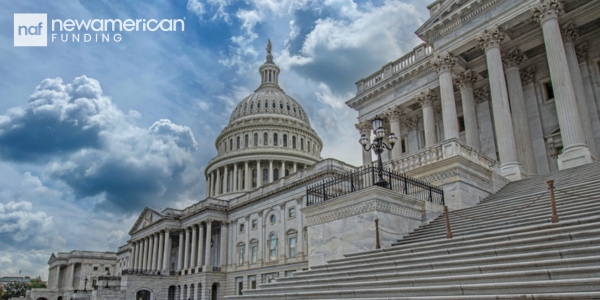Housing News, Videos
Market Update: September 20, 2018
September 20, 2018
Today we are going to talk about what's happening with interest rates.
For the last couple of weeks, we've seen interest rates creep up and up. The yield on the 10-year Treasury is now over 3%; something that hasn't happened very often since the financial crisis. The graph on your screen shows the 10-year for the past 8 years. What's interesting is the fact that the 10-year has not sustained a 3+% yield for 30 straight days since 2011.

Additionally, the high for 2018 is 3.11% and if we break through that level then it's possible the 10-year could rise to 3.50%. Right now, the 10-year is at 3.06% and we are getting close to that level of resistance, but we aren't there yet.
There are a lot of disagreements about where rates will head from here. Almost everyone agrees the Fed will raise rates by 25 basis points next week. There is some disagreement on whether the Fed will raise rates again in December. And the largest disagreement is on what the Fed will do in 2019. The range of predictions is between one interest rate hike to four.
In financial lingo, you have monetary hawks and doves. A hawk is a bird that flies high, so think of hawks as those that want rates higher. A dove is a low-flying bird, so in market terminology, they want lower rates.
The hawks believe the economy is strong, inflation is holding steady and the Fed will continue along its path to policy normalization. The hawks don't believe the Fed needs to concern themselves with an inverted yield curve (that is to say a condition where the yield on the 2-year Treasury is higher than the 10-year Treasury). In their minds, the Fed is going to raise rates four times in 2019.
The doves on the other hand point to low inflation, an escalating trade war, low bond yields around the globe, and an inflated stock market. Doves believe an inverted yield curve could spook the market and it is a very strong recessionary signal. They believe the Fed will raise one to two times in 2019.
Who will be right is hard to predict but I will say that for the past several years the Fed has had to err on the side of caution and they should be more concerned with the trade war, stock prices, and an inverted yield curve than they do inflation.
In the coming weeks you should keep an eye on the following items:
- I've said it before and I'll say it again ... keep watching the yield curve. Today the spread is only 25bps and we have the Fed raising rates next week 25bps.
- As I just mentioned, the Fed meeting next week will be big. Yes, they will raise rates 25bps but what language do they use and what are their predictions on rates for the remainder of 2018 and 2019?
- Also, next week after the Fed is Core PCE, the Fed's preferred inflation measurement.




 Smart Moves Start Here.
Smart Moves Start Here.